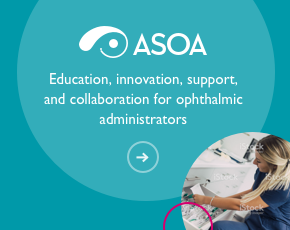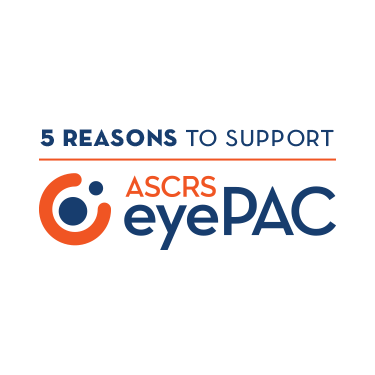ASCRS Joins 39 Medical Organizations in Urging CMS to Suspend New Prior Authorization Requirements to Ensure Medicare Beneficiaries Access to Care
On April 7, ASCRS joined 39 medical groups in a letter to the Centers for Medicare and Medicaid Services (CMS) urging the agency to delay its prior authorization requirements for two new service categories included in the CY 2021 OPPS/ASC Final Rule and to withhold further action on the expansion of prior authorization requirements until more data is collected. In the letter, we express concern for CMS's increasing use of prior authorization and note that this new rule comes months after CMS established a nationwide prior authorization process for five hospital outpatient department services, which include blepharoplasty, botulinum toxin injection, rhinoplasty, panniculectomy, and vein ablation. The letter raises several issues related to this recent expansion of prior authorization, including barriers for patient access to medically necessary procedures and the potential for future expansions to unnecessarily delay access to care to an even greater number of beneficiaries. In addition, these requirements will add administrative costs and burdens for providers.
Senate Panel Sets Hearing for Chiquita Brooks-LaSure, Nominee for Centers for Medicare and Medicaid Services Administrator
On April 15, the Senate Finance Committee will hold a hearing on President Joe Biden's nominee, Chiquita Brooks-LaSure, to serve as the Administrator for the Centers for Medicare and Medicaid Services (CMS).
Chiquita Brooks-LaSure, a former policy official who played a key role in guiding the Affordable Care Act (ACA) through passage and implementation, is currently Managing Director at Manatt, Phelps & Phillips, LLP where she provides policy analysis and strategic advice to healthcare stakeholders across the private and public sectors. Brooks-LaSure has more than 20 years of experience in health policy. In her previous roles as deputy director for policy at the Center for Consumer Information and Insurance Oversight within CMS, and earlier at the Department of Health and Human Services as director of coverage policy, she led the agency’s implementation of the Affordable Care Act (ACA) coverage and insurance reform.
MedPAC Recommends Supporting Fewer APMs and Modifications to Medicare Policies for Separately Payable Drugs in the Hospital OPPS
On April 1 and 2, the Medicare Payment Advisory Commission (MedPAC) held its public meeting, during which they discussed streamlining CMS's portfolio of alternative payment models (APMs) and options to improve Medicare's policies for separately payable drugs in the hospital outpatient prospective payment system (OPPS). The following recommendations will be included in MedPAC’s June 2021 Report to Congress.
CMS’s Portfolio of APMs
The commissioners unanimously voted to recommend the Secretary should implement a more harmonized portfolio of fewer APMs designed to support the strategic objectives of reducing spending and improving quality. This recommendation is based on CMS’s implementation of numerous overlapping models that allow providers to concurrently participate in more than one and/or different tracks of the same model, which ultimately limits savings and quality improvement in Medicare. According to CMS data, approximately 580,000 clinicians participated in at least one Medicare APM in 2019, including ACOs, episode-based payment models, and primary care transformation models. Twenty percent of these clinicians were participating in multiple Medicare APMs or multiple tracks of a Medicare APM.
Separately Payable Drugs in Hospital OPPS
The Commission discussed options to improve Medicare's policies for separately payable drugs in the hospital OPPS. The commissioners unanimously voted to recommend that Congress direct the Secretary to modify the pass-through drug policy and the hospital OPPS so that pass-through drug policy only applies to drugs and biologics that function as supplies to a service and are clinically superior to their packaged analogs. Additionally, the commissioners recommended that the HHS Secretary should specify that the separately payable non-pass-through (SPNPT) policy in the hospital OPPS applies only to drugs and biologics that meet a defined cost target and are the reason for the visit.
As a reminder, MedPAC is an advisory body to Congress and has no force of law.
Provider Relief Fund (PRF) Reporting Portal Open for Registration Only
As we have reported, recipients of Provider Relief Fund (PRF) payments exceeding $10,000 in aggregate must register in the Provider Relief Fund Reporting Portal. The portal is currently only open for registration, not the actual step of submitting the key data for reporting.
There is no deadline for completing registration in the portal. After registering, recipients will later receive a notification about when they should complete the second step of submitting reporting requirements information on the use of funds. HRSA will send a broadcast email to the email address you provide during the registration process.
Please refer to the PRF Reporting Portal User Guide and the Reporting Portal FAQs for more information about the registration process. We will provide additional information when it becomes available.


